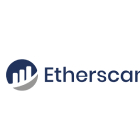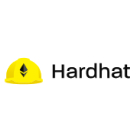Blockchain+ Developer™
Blockchain+ Developer™
$321.00
| Duration: 40 hours (5 Days) |
| BL-200 |
Build the Foundations of Tomorrow with Blockchain Developer
- Career-Focused: Build expertise in blockchain and Bitcoin development
- Hands-On Skills: Tackle practical development work with future-oriented learning
- Innovation-Driven: Learn strategies for digital transformation and decentralized innovation
Prerequisites
- Familiarity with general programming concepts like data structures, algorithms and networks.
- Understanding of at least one legacy programming stack (e.g. Python, JavaScript, Java or similar).
- Fundamental knowledge to use command line consoles on any operating system.
- Ability to understand developer concepts like SDKs, APIs, application development tools etc.
- Experience with building end to end tiered applications.
- Course Introduction Preview
- 1.1 Origin of Blockchain
- 1.2 What is Blockchain?
- 1.3 Consensus Mechanisms
- 1.4 What are Smart Contracts?
- 1.5 Bitcoin Blockchains
- 2.1 What is an EVM and Ethereum?
- 2.2 Wallets Introduction and Creation
- 2.3 Introduction to Remix Editor with Metamask
- 2.4 Smart Contract Basic Structure
- 2.5 Variables, If/Else, Strings, Loops, Arrays, Test Tokens
- 3.1 Libraries, Interfaces, Modifiers
- 3.2 Structures, Enums, ABI, Calldata, Events, and Transfers
- 3.3 Contract-to-Contract Calls
- 3.4 Address and Address Payable
- 3.5 Receive and Fallback Functions
- 3.6 Upgradeable Contracts
- 3.7 Openzepplin Libraries
- 4.1 ERC20 Token Creation
- 4.2 NFT, NFT Minting, IPFS, Security, and Pinata Cloud
- 5.1 Truffle, Ganache, and Hardhat
- 5.2 Metamask Wallet
- 5.3 Remix Development Environment
- 5.4 Localnet and Testnet Deployment
- 6.1 Web3.0 Integration with JS
- 6.2 Wallet Creation and Sending Transactions
- 7.1 Public Vs Private vs. Consortium Blockchain Frameworks
- 7.2 Introduction to the Hyperledger Fabric
- 7.3 Hyperledger Projects
- 8.1 Basic Concepts of HLF
- 8.2 Docker Introduction
- 8.3 Commands and Setup
- 9.1 Installation and Path Setup
- 9.2 VS Code Plugin Setup, Variables, Strings, Conditional Statements, and Loops
- 9.3 Basics of the Language
- 10.1 Chain code Explanation using Fabric Samples and Test-network Explanation using Linux Scripting
- 10.2 Error Handling
- 10.3 Error Codes and Messages
- 10.4 Logging Errors
- 10.5 Handling Panics
- 11.1 Extending the Default Chaincode
- 11.2 Chaincode Deployment
- 11.3 REST API Integration with Front End
- 12.1 Why Smart Contract Audits are Necessary
- 12.2 Introduction to Firefly, Fabconnect, and Blockchain Explorer

Etherscan

Remix IDE

Hyperledger Fabric

Hardhat
Passing Score : 70%
Number of Multiple Choice Question : 50 MCQs, 90 Minutes
Number of exams required for certification : 1
Exam Blueprint
- Introduction to Blockchain and Smart Contracts – 5%
- Ethereum Virtual (EVM) and Solidity Basics – 5%
- Advanced Solidity and Structures – 10%
- Tokenization and NFTs – 10%
- Development Tools and Techniques – 5%
- DApp Integration and Testing – 5%
- Introduction to Private Blockchains -Hyperledger Fabric – 10%
- Deep Dive into Hyperledger Fabric – 10%
- Golang Programming for Hyperledger Fabric – 10%
- Chaincode Structure and Error Handling – 5%
- Custom Chaincode – 10%
- Smart Contract Auditing and Tools Hyperledger Fabconnect, and Firefly – 5%
Solidity Programming and Smart Contract Development
Learners will gain proficiency in Solidity, the programming language used for writing smart contracts on the Ethereum blockchain. Starting from basics to advanced concepts, including structures and error handling.
Tokenization and Non-Fungible Tokens (NFTs) Management
Learners will acquire skills in creating and managing digital tokens and non-fungible tokens (NFTs) on blockchain platforms. This involves the tokenization process, including token standards like ERC-20 and ERC-721, and learn how to develop NFT applications for unique asset representation, such as digital art, collectibles, and gaming assets.
Hyperledger Fabric Development
Learners will explore Hyperledger Fabric, a permissioned blockchain framework, and its components like writing chaincode (smart contracts) in Golang. Gain understanding on the structure and error handling mechanisms specific to Hyperledger Fabric chaincode.
Smart Contract Auditing and Testing
Learners will acquire skills in auditing and testing smart contracts to ensure their security, reliability, and compliance with business requirements. This includes learning about tools like Hyperledger Fabconnect and Firefly for smart contract auditing, debugging, and monitoring, enabling them to identify and address vulnerabilities and optimize smart contract performance.
DApp Developers
Creates secure, efficient blockchain smart contracts. Provides decentralized application functionality and integrity, boosting blockchain ecosystem trust and security.
Blockchain Application Developers
Produces business-specific DApps. Maintains blockchain’s transparency and immutability to provide secure, efficient solutions that improve operations and digital transaction confidence.
Ledger Developer
Produce robust apps that prioritize data integrity, transparency, and security. Ensures stability and integrity, enabling secure and transparent distributed network transactions.
Smart Contract Auditor
Examine smart contracts for vulnerabilities and flaws to ensure the security and reliability of blockchain-based systems and applications through thorough auditing processes.
FAQ
What career opportunities can this certification lead to?
This certification prepares you for roles such as Blockchain Developer, Smart Contract Developer, DApp Developer, Blockchain Consultant, and more in industries like finance, healthcare, supply chain, and government.
Will I work on real-world projects during the course?
Yes, the course includes hands-on exercises and case studies that involve real-world scenarios to help you apply the concepts learned.
What types of projects will I work on during the course?
In this course, you’ll work on projects such as creating and deploying smart contracts, building decentralized applications (DApps), establishing private blockchain networks, and integrating blockchain with existing systems through REST APIs.
How is the course structured?
The course begins with foundational concepts of blockchain and smart contracts, progresses to advanced topics like Solidity structures and tokenization, and then explores Hyperledger Fabric for private blockchain development. Practical exercises and projects are included throughout the course.
What tools and platforms will I use during the course?
The course covers essential tools such as Truffle for Ethereum smart contract development, Ganache for local blockchain testing, and Docker for Hyperledger Fabric setup. Participants will also use various integrated development environments (IDEs) for coding.
Reviews
Average Rating
Detailed Rating
| Stars 5 |
|
0 |
| Stars 4 |
|
0 |
| Stars 3 |
|
0 |
| Stars 2 |
|
0 |
| Stars 1 |
|
0 |
Be the first to review “Blockchain+ Developer™” Cancel reply
$321.00
| Duration: 40 hours (5 Days) |
| BL-200 |

There are no reviews yet.